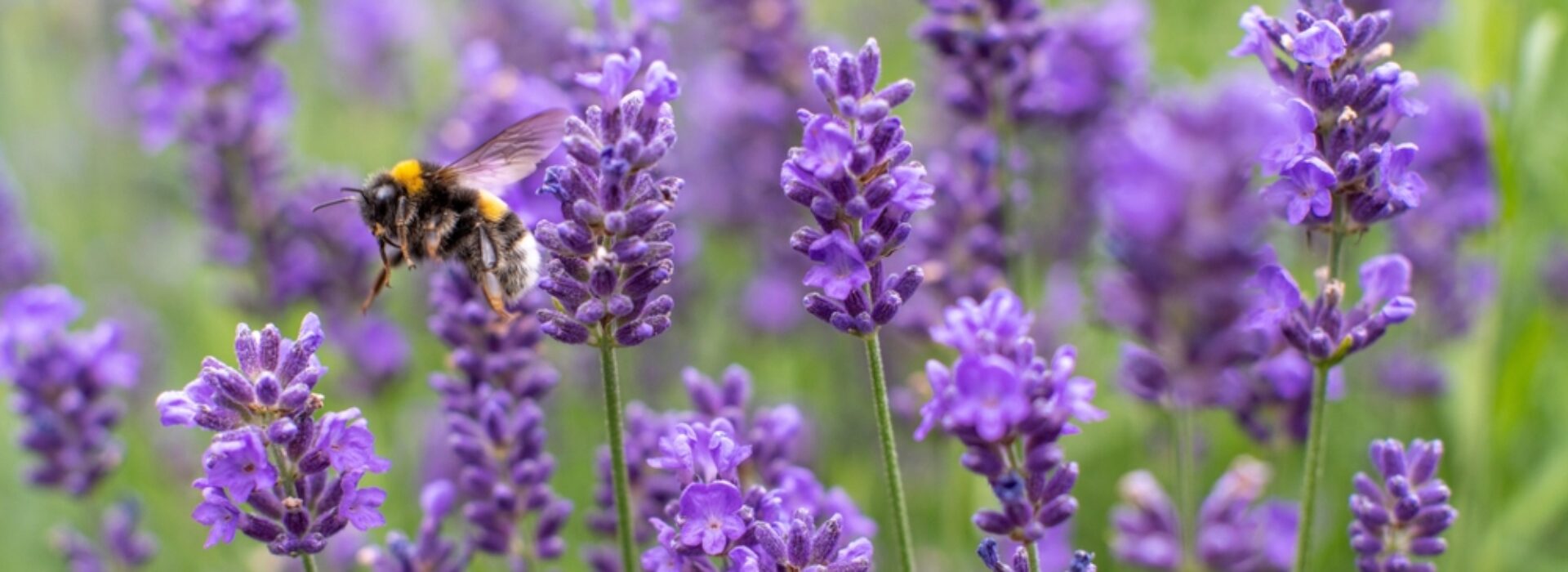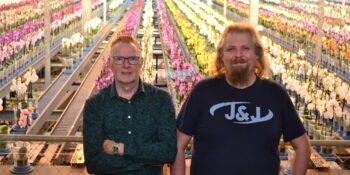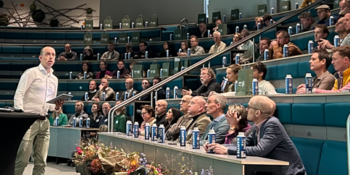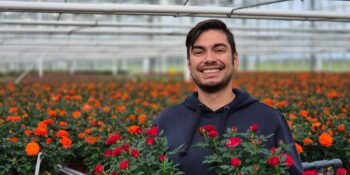Multiflower was established in 1995. Together with his two co-owners, Tjerk Scheltema has been at the helm of the Tanzania-based producer and distributor of cuttings and seeds of ornamental crops since 2000. Scheltema and his team, which consists exclusively of local staff, produce rooted and unrooted cuttings and seeds of Lavandula (for Gebr. Van der Salm), Pelargonium grandiflorum (for Hendriks Young Plants), Kalanchoe and Schlumbergera (for Kwekerij Lankhaar) and Spathiphyllum (for Van der Voort Young Plants). Multiflower also supplies various flower seeds, which are produced under contract by 3,000 small growers. But it is the business’s third activity that really stands out: production of predatory mites, fungi and bacteria for biological pest control.
Their interest in biological crop protection started ten years ago, Scheltema says. “My wife and daughter were shocked at the extent of chemical usage in the sector: ‘Either you stop using chemistry or you find another job,’ they said. I also realised myself that things really had to change: we had 350 people working for us, and there is a school next to our site. For the sake of those people, you actually shouldn’t use any chemicals at all.”
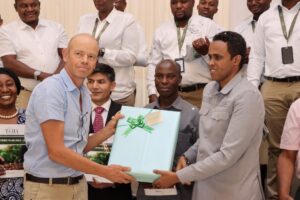
Scheltema with Tanzanian agriculture minister
Rough diamonds
That statement characterises the way the company treats its people. “When I took over the business from my colleague in 2000, I soon realised that we had to switch from a Dutch production manager to as many Tanzanian staff as possible. Ex-pats often leave again after two or three years, but Tanzanians stay much longer if you train them well and look after them.”
Scheltema describes his people as “rough diamonds”. “You have to polish them, then they will shine by themselves as long as you give them the confidence.” That confidence goes a long way: Scheltema does very little on the operational side himself. “Our people make their own decisions: every week, one of the local managers is the duty manager who runs the business that week and is responsible for everything.”
But needless to say, Scheltema is invested in his people. “I pay a visit when there’s a birth or funeral. It’s all about looking after your people well, keeping them motivated and above all, treating them with plenty of respect.” Among other things, the company does this by providing health services for the whole family, a school for the workers’ children, sports clubs, a drama club, a works council and lots of training courses. All those initiatives seem to work well: staff turnover is low, with most of the staff having been with the company for 15 to 25 years. “This means we retain knowledge and experience, and quality fluctuations are rare.”
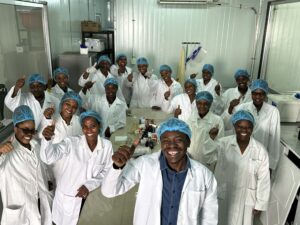
Biological Department
A “zoo” of natural predators
As mentioned, this concern for the welfare of its people was the reason why the company decided to focus on biological crop protection. In doing so, the company had to rely primarily on itself. “It proved difficult to buy and import beneficial insects in Tanzania. So we learned how to produce predatory mites ourselves, but that was just the first step in the process. We now also produce fungi, bacteria and bio-extracts, and we remove and trap a lot of insects.”
The company is also using the experience it has gained in biological crop protection to help others. “The switch to growing without chemicals has been a game-changer for us. We have attracted a lot of attention for our methods from Tanzanian journalists and politicians. Other growers saw that and wanted it too. We tell them: stop spraying chemicals and use beneficial organisms preventively to avoid problems in the crop. This often means ending up with lots of different beneficial and harmful insects, with the greenhouse sometimes looking a bit like a zoo. But the beneficial organisms present create a good natural balance that ensures that any harmful insects cause minimal problems.”
This “zoo” of creatures in the greenhouse does no harm, “But unfortunately there are some countries to which we export, such as Japan and the US, where consignments have to be fumigated or destroyed if just one single insect is found on inspection. We have even seen this happen when beneficial insects such as predatory mites (cryptobugs) were found. To begin with, we still used some chemicals to prevent that, but now we check cuttings for the USA and Japan manually to make sure they are insect-free.”
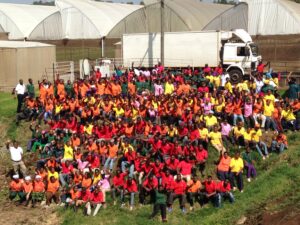
Team Multiflower
More testing, creative thinking
Scheltema and his team are intrinsically motivated to grow organically; they don’t need the extra encouragement provided by organisations such as MPS. “But we always submit our numbers faithfully and see whether we can do anything with the ideas that MPS puts forward. However, I do think that there should be more testing for crop protection residues. When you submit lists, there is theoretically a risk of cheating: that can’t happen with testing.”
Scheltema also sees a role for MPS in accelerating and facilitating the switch from chemicals to biological crop protection. “This switch is a must for our sector if we are to make and keep our image natural and pure. We want people to be happy with flowers and not wonder how many chemicals they have been sprayed with. We mustn’t wait until the politicians and environmental organisations start putting more pressure on us. We must take the initiative ourselves. My wife was a flight attendant back in the day when smoking was allowed in aircraft. We find that incomprehensible and too crazy for words now. Our hope is that we will react the same way to chemicals in agriculture in the future,” says Scheltema.
“Growing organically often means that crops are not 100 percent free of insects. Major buyers and the retail market will sometimes reject consignments if they find ‘things’ in them. This has to change: finding an insect is actually a good thing because it means the crop has most likely not been sprayed. We often also hear from consumers that they don’t mind seeing a few insects or minor damage on plants. In addition, buying beneficial insects is very expensive in the Netherlands for growers, and the approval process of biological agents is slow and costly. That is probably why there are so few suppliers. More suppliers means more competition, then prices will fall. We produce everything ourselves, and that is really not that difficult or expensive. MPS could play a role in this.”
For growers like Multiflower who are serious about switching to biological crop protection, Scheltema has one more message: “If you want to grow organically, you have to think differently. You need to be creative: it’s not a question of one single product, it’s a total package. That might sound complicated, but once you’re there you will break through the sound barrier, just like we did. You can grow more easily, guilt-free, and your crop will be all the better for it.”
